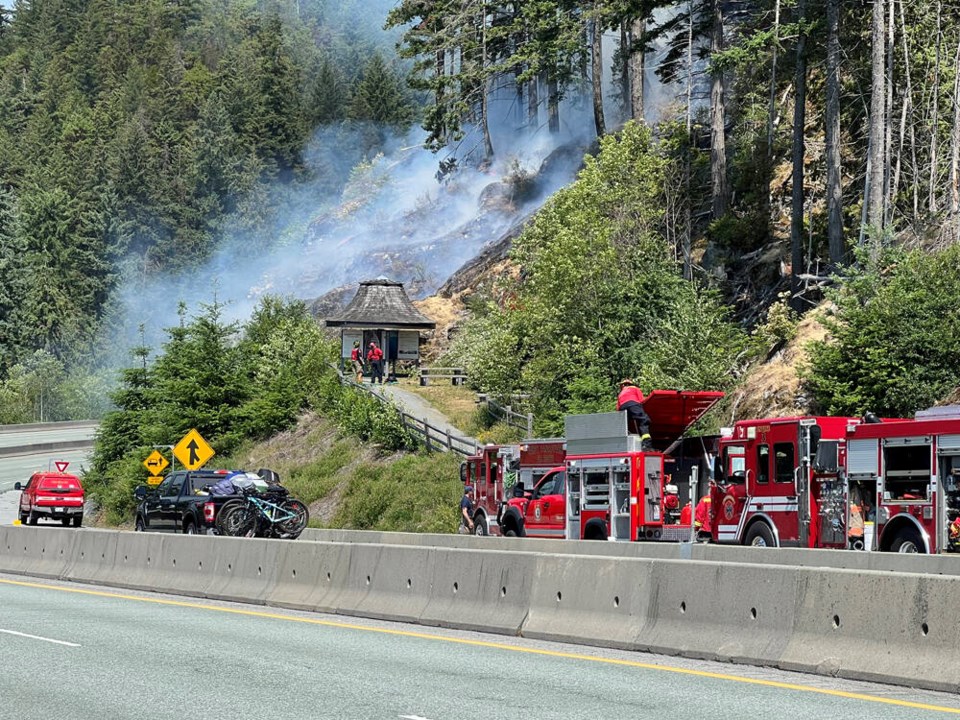District of West Vancouver council has briefly considered but stopped short on a proposal to make the entire municipality more resistant to wildfires.
For the last five years, any new construction happening within 100 metres of the forest interface must first get a wildfire hazard permit and meet a separate set of rules for construction and landscaping intended to stop wildfires from spreading.
Among those guidelines: increasing the space between structures and nearby trees and brush, incorporating fire-resistant and non-combustible construction materials and requiring more fire-resilient tree species in landscaping.
After a series of devastating wildfires elsewhere in B.C. and the world in recent years, staff came forward with a proposal that would extend those same permit rules for new builds across the entire municipality.
One of the most worrying lessons learned from the Okanagan Lake wildfire in 2023 was that embers were known to travel 2.5 kilometres beyond the fire’s front line, staff noted, and West Vancouver has several smaller wildfires near Whyte Lake, Horseshoe Bay and Cypress Falls in recent years.
The matter went to a public hearing last month but when it came to council for a vote on April 14, council members had too many reservations, particularely about the potential for the loss of trees, to go ahead.
“I have concerns about the broad strokes that we tend to be taking with respect to the urban forest management plan and this particular policy that’s being proposed,” said Coun. Linda Watt. “I just feel that this is not Los Angeles, this is not Kelowna or Maui, and I just feel that it needs more work.”
Coun. Nora Gambioli said she was open to making some changes in what construction materials could be used in certain parts of new homes, but she too wasn’t prepared for any trade-offs that would see a net loss of trees.
“I don’t really see the concrete evidence that the bulk of West Vancouver is a high risk for wildfires… I don’t think it’s as dire as some of the consultants think it is,” she said. “In reality, I think we need a heat-mitigation plan and we need a flood-mitigation plan, if anything. And both those plans require more trees and more canopy, so there’s just a bit of a disconnect for me here.”
Ultimately, the matter went back to staff for further work.
 Want to stay updated on North Vancouver and West Vancouver news? Sign up for our free daily newsletter.
Want to stay updated on North Vancouver and West Vancouver news? Sign up for our free daily newsletter.




